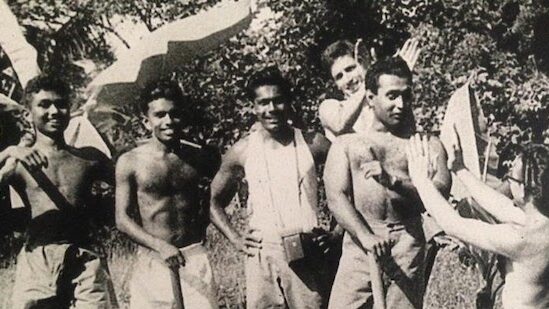Philosophy and inception

SARVODAYA’S INSPIRATION: UNTO THIS LAST: The history of the concept of Sarvodaya in the modern era begins with English social philosopher John Ruskin. In 1860, Ruskin wrote a series of essays that criticized the capitalist system because it created a hierarchical social structure, hyper-competitive culture, mechanical worldview, and undermined the dignity of labor. As an alternative, he suggested building economic systems that facilitate fair wages, meaningful work, and which would focus on enabling the least powerful, not the most. He published this collection of essays in 1862 as a book, entitled Unto This Last.

“SARVODAYA” ARTICULATED BY GANDHI
While Ruskin provided the framework for the Sarvodaya philosophy, the term would not be coined until a half-century later. In 1904, a young lawyer in South Africa, Mohandas Gandhi, was given a copy of Ruskin’s Unto This Last by Henry Polak, a newspaper editor in Johannesburg. Gandhi read it during an overnight train ride, and recalled in his autobiography that it caused “an instantaneous and practical transformation of my life.” He continued, “I believe that I discovered some of my deepest convictions reflected in this great book of Ruskin.”
The lessons that Gandhi understood from Unto This Last were:
That the good of the individual is contained within the good of all. That all people have the same right to earn a livelihood from their work, regardless of trade. That a life of labor as a farmer or hand-craftsman is a dignified and valuable life.
In order to share these insights with his countrymen in India, Gandhi translated Unto this Last into the Gujarati language in 1908, and entitled it Sarvodaya (the well-being of all). Inspired to build a Sarvodaya society, he founded the Phoenix Settlement in South Africa, a farm where everyone received the same wage regardless of ethnicity or assigned tasks. Throughout the rest of his life as a social activist and philosopher, the concept of Sarvodaya remained a central motivating force. Since Gandhi’s death in 1948, Sarvodaya philosophy and practice has manifested in movements throughout India for land redistribution, small-scale agriculture and manufacturing, low-cost practical education, and non-violent political reform.
SARVODAYA MANIFESTS IN SRI LANKA
The fullest manifestation of Sarvodaya, however, has been on the small island of Sri Lanka, south of India. In 1958, a young science teacher named A.T. Ariyaratne, who had been inspired by Gandhi’s activism and Sarvodaya philosophy, found himself dismayed with the attitudes of his upper-class students toward the country’s many impoverished villagers. He decided to organized a two-week “Shramadana” (sharing of labor) in which the students would work alongside villagers on basic needs projects, and would join with them in meals, conversation, and cultural performances. The goal was not to provide charity, but to inspire “the awakening of all through the sharing of labor.” Thus, the Sri Lankan Sarvodaya Shramadana movement was born.
Their example provided inspiration for thousands of other Shramadana camps throughout the country, and the movement grew to have programs and significant influence in over 15,000 villages. Sarvodaya workers helped villages organize for self-governance, carry out basic needs projects, establish savings banks, credit programs, preschools, training centers, and many other facilities that would uplift and empower all. The movement is governed by the ideals of participatory democracy with decentralized power and resources.
Sarvodaya Sri Lanka has identified ten basic human needs that must be satisfied for all individuals in a just society:
1. Clean Environment
2. Adequate Supply of Water
3. Clothing
4. Nutritious Food
5. Shelter
6. Health Care
7. Communication
8. Fuel and Lighting (Energy)
9. Access to Education
10. Cultural and Spiritual Performance
The Sarvodaya Shramadana movement endured and provided vital support and resources during Sri Lanka’s nearly 30-year civil war, recovery after the 2004 tsunami, the 2019 Easter Attack and continues to creatively evolve and pursue new ways to assist through the COVID-19 pandemic in order to improve the lives of Sri Lankans and inspire people around the world. To learn more, visit www.sarvodaya.org

